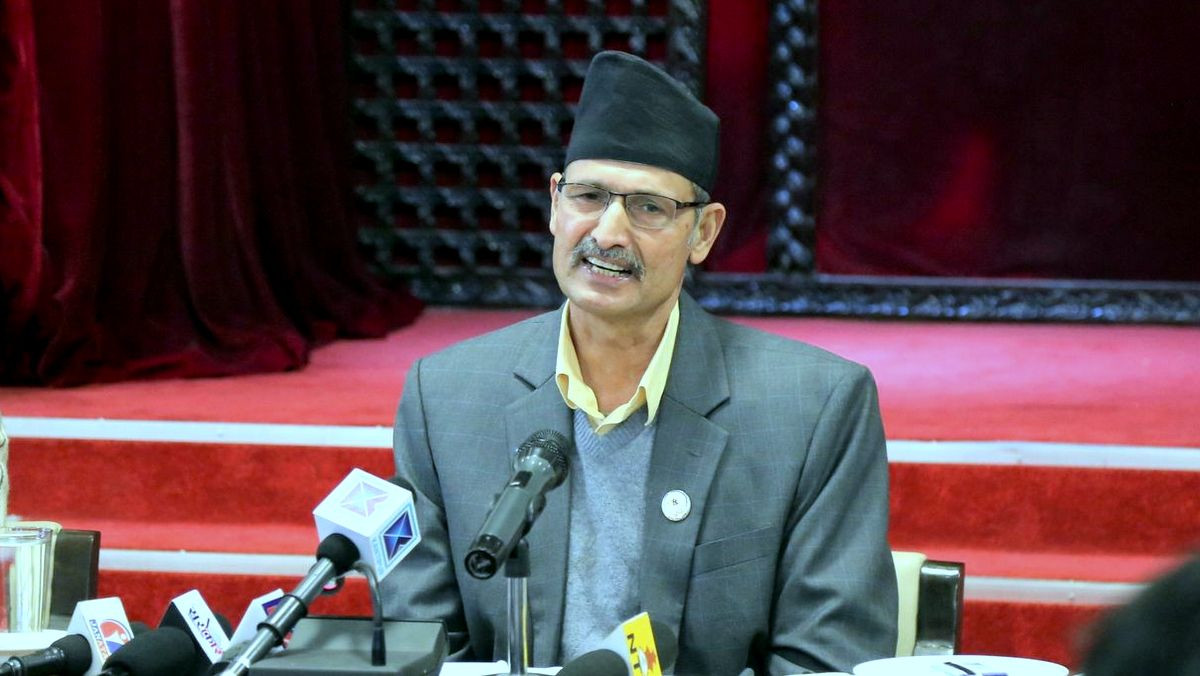Seven ordinances brought by the government have been stuck due to the uneasy relationship between Speaker Agni Sapkota and ruling CPN-UML.
The Constitution requires the ordinances brought by the government when the House is not in business to be tabled after the start of the next House session. But just one ordinance could be presented in the House amidst sloganeering by the main opposition Nepali Congress (NC) when the House session started on Sunday.
Law Minister Lila Nath Shrestha presented the controversial ordinance about Constitutional Council while NC lawmakers had encircled the rostrum and Speaker Sapkota adjourned the House immediately.
Home Minister Ram Bahadur Thapa was set to present ordinances related to operation of Nepal Police and provincial police forces, social security and regulation of acid and other harmful materials on Sunday. Health Minister Hridayesh Triphati was to present an ordinance about drugs, and Law Minister Shrestha ordinances about criminal offense, sexual violence and Truth and Reconciliation Commission and the Commission for Investigation of Enforced Disappeared Persons.
The meeting that started just after the Supreme Court invalidated unification of the then CPN-UML and CPN (Maoist Center) was boycotted by lawmakers who until then were in the Dahal-Nepal faction of CPN while NC and another opposition party Janata Samajwadi Party obstructed House proceedings.
There is now confusion about how to move the ordinances forward. Ruling UML claims that the problem is due to lack of coordination by Speaker Sapkota. Chief Whip of UML Bishal Bhattarai claimed that presenting the ordinances on the second or third House meeting is unconstitutional while a member of Speaker Sapkota's secretariat contended that the government is not serious about moving the ordinances forward. "Speaker wanted to move the ordinances forward during the House meeting on Wednesday but the government may have been unwilling to do that."
The ordinances will be automatically void if not presented in the House or passed by it. Secretary with the House of Representatives (HoR) Gopal Nath Yogi said some way has to be found about the ordinances.
Law Minister Shrestha said lawmakers of ruling party can bring a motion demanding presentation of the ordinances but added that discussion with Speaker Sapkota about moving the ordinances forward has been inconclusive.
UML Chief Whip Bhattarai attributed the problem to lack of meeting of the Business Advisory Committee. "We could have discussed how to move forward if the meeting were called by Speaker Sapkota. Some lawmakers do not even want to hear about ordinances which ensured that even the mandatory provision of Constitution could not be implemented," Bhattarai stated.
Prime Minister (PM) KP Sharma Oli had removed Dev Gurung as chief whip of CPN and replaced him with Bhattarai before the SC invalidated unification. But Speaker Sapkota, who was elected HoR member on Maoist ticket, had refused to even meet Bhattarai in the beginning.
Sapkota's relationship with PM Oli is already strained after he repeatedly boycotted the Constitutional Council meetings forcing Oli to bring the controversial ordinance about Constitutional Council.
The factional dispute in CPN has ended with the SC's invalidation of unification of UML and the Maoists but the bitter relationship between the two chairmen of the then CPN—Oli and Pushpa Kamal Dahal—is affecting the House proceedings.
The next meeting of House has been scheduled for March 16.

